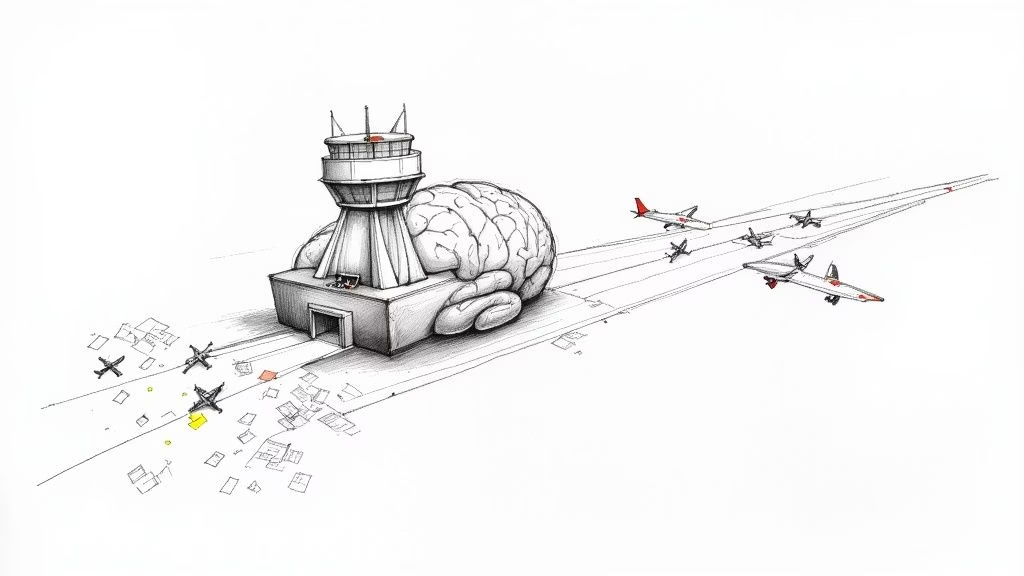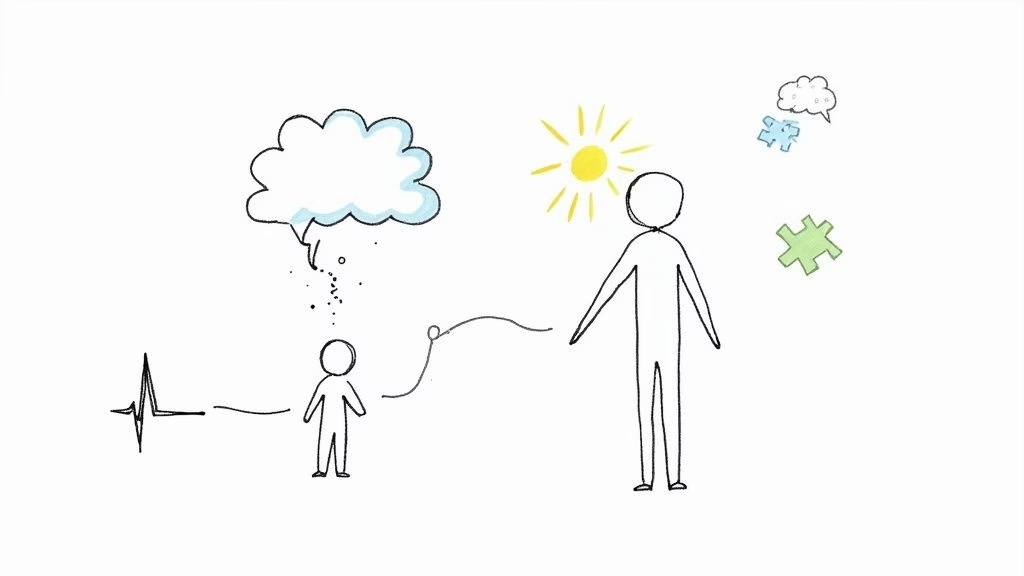IIn a world of constant notifications, academic pressure, and social media comparison, it’s no surprise that teen anxiety is at an all-time high. According to the CDC (source), over 1 in 9 teens experience anxiety disorders, which can impact everything from their sleep to their school performance to their social life.
But here’s the good news: mindfulness offers a simple, research-backed way to help your teen feel more grounded, calm, and in control. Studies show that practicing mindfulness can significantly reduce anxiety and stress in adolescents (source)—and it doesn’t have to be complicated or time-consuming.
Here are five easy, practical ways to introduce mindfulness for teens and help them build habits that support emotional resilience and well-being.
1. Start With Just One Minute of Breathing
One of the fastest ways to regulate stress is to return to the breath. Encouraging your teen to take just one mindful minute to focus on their breathing can calm their nervous system and help reset a racing mind.
Try introducing them to box breathing (inhale for 4 seconds, hold for 4, exhale for 4, hold for 4). It’s the same breathing technique used by Navy SEALs and top athletes for calming nerves and improving focus.
Why it matters: Deep breathing activates the parasympathetic nervous system, which helps reduce cortisol levels (the stress hormone) and promotes a sense of safety and calm.
2. Use Mindfulness Apps for Teens
Instead of battling screen time, why not make technology work for their well-being? There are several mindfulness apps designed with teens in mind. Here are a few worth exploring:
- Headspace for Teens: Offers guided meditations specifically for teens and young adults.
- Smiling Mind: A free app developed by psychologists and educators with age-specific mindfulness programs.
- Insight Timer: A huge library of free guided meditations, soundscapes, and breathing exercises.
Why it matters: Regular use of these apps has been shown to improve sleep, reduce anxiety, and enhance emotional regulation in teens.
3. Turn Hobbies Into Mindful Moments
Mindfulness doesn’t have to look like sitting still in silence. In fact, some of the most powerful moments of presence come when teens are immersed in the activities they love. Whether it’s:
- Drawing or painting
- Climbing or skateboarding
- Playing an instrument
- Cooking or baking
…these activities can all become mindful practices when done with intention and awareness. Encourage your teen to notice the sounds, sensations, and feelings that arise as they focus fully on what they’re doing.
Why it matters: Mindful hobbies can create a “flow state,” which has been linked to decreased anxiety and improved mood.
4. Establish a Calming Nighttime Routine
An overstimulated brain has a hard time falling asleep. Creating a mindfulness-based evening routine can help your teen wind down, reduce anxiety, and sleep more soundly. Consider:
- Turning off screens 30–60 minutes before bed (Sleep Foundation)
- Doing a 5-minute body scan meditation (here’s a great example on YouTube)
- Journaling one thing they’re grateful for
- Listening to calming music or sound baths
Why it matters: Better sleep supports emotional regulation, focus, and overall mental health—especially for teens.
5. Model Mindfulness Yourself
The best way to teach mindfulness is to live it. When parents or caregivers practice mindfulness—even in small ways—it sends a strong message that being present, grounded, and calm is valuable and attainable.
Try narrating your own mindfulness habits casually:
“I’m feeling stressed, so I’m taking a few deep breaths.”
Or invite your teen to join you: “Want to try a short breathing exercise with me before dinner?”
Why it matters: According to Harvard Health, consistent mindfulness can reduce symptoms of anxiety, depression, and stress—not just in individuals, but across family systems.
Why Reducing Anxiety in Teens Is So Important
Unchecked anxiety can impact a teen’s ability to concentrate, build healthy relationships, and feel confident in themselves. Over time, it may even contribute to academic struggles, sleep issues, and chronic stress. Teaching your teen simple mindfulness practices gives them a powerful toolset to manage life’s challenges in a healthy, proactive way.
By incorporating even one or two of these mindfulness strategies into your teen’s routine, you’re helping them develop lifelong emotional resilience and self-awareness.
Looking for more support?
If your teen is struggling with anxiety, motivation, or confidence, I offer personalized life coaching for teens that blends mindset tools, goal setting, and mindfulness. Book a free consultation here to see if coaching is a good fit.




















